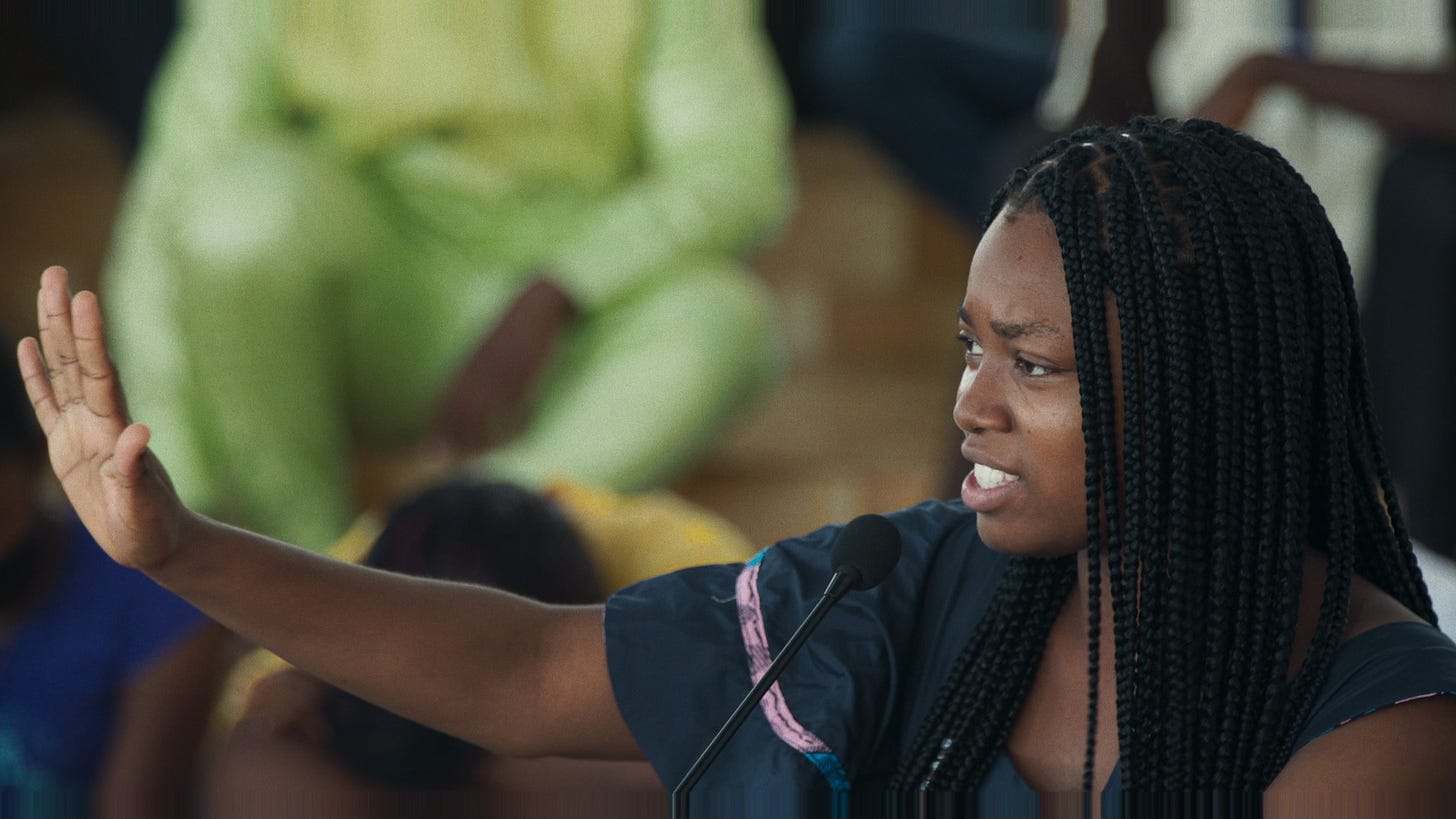'Dahomey' and 'Kneecap' Seek a Future in the Shadow of Colonization
Two 2024 movies explore how a new generation works to reforge their culture.
I’ve been making my way through 2024 movies as the various critics’ groups I belong to are about to commence voting. That means playing a bit of catchup, but I didn’t expect to land on a surprising double-feature when I watched Mati Diop’s documentary Dahomey on Monday and the music biopic Kneecap on Tuesday.
Dahomey examines the repatriation of artifacts from France to Benin, known as Dahomey, before the French colonized it in 1894. The documentary notes that the French government is only repatriating 26 ethnographic objects out of 7,000 and then spends a sizable chunk of the movie listening to students from the University of Abomey-Calavi debate the decision to put these objects in a museum. The students debate if this is merely a PR on behalf of France and Benin’s governments, why only twenty-six objects merited repatriation, where the objects now fit into Benin society, and more.

Kneecap takes place in the North of Ireland and follows the rise of real hip-hop group, Kneecap, with the members of the group—Liam Óg Ó hAnnaidh, Naoise Ó Caireallain, and J.J. Ó Dochartaigh—playing themselves. Although that sounds like a vanity project designed to move records, Rich Peppiatt’s film is an absolute blast that grounds the group’s music in what makes them distinct—they rap in Irish. For some viewers, there isn’t even a sense of an Irish language, and to “speak Irish” simply means English with an Irish accent (it’s not; it’s a separate language). But as the film shows, the three members see not only their music as an act of rebellion but language as a vital weapon against oppressors.
As different as these movies are and as different as their respective colonizations looked, it’s heartening to see young people in different spots on the globe wrestle with a similar question. Colonization creates a gap where the beliefs and culture of the colonizer rush in to fill and obliterate what was there before. When the colonizers finally leave, the native inhabitants are left with the wreckage, trying to pick up the pieces and figure out how to rebuild. Colonization isn’t a pause but a destructive force, and the colonized cannot simply pick up where they left off before the colonizers tore everything down.
In Dahomey, Diop emphasizes the carelessness of the French authorities and that even while the repatriation may have been done in goodwill, there’s never been any respect for these items from the French. Attempting to speak for the objects, Diop gives them narration, and one object muses, “Why 26? Why not 24 or 25?” These items have no names for the French because they were never a part of French culture; they were merely plunder, and even as they go back to the people of Benin, the French never bothered with trying to correctly identify and name these objects.
In Kneecap, the battle is always active with The Troubles having only ended less than 30 years ago and a generation younger than the Good Friday Agreement at odds with a Britain that still seeks to enforce its cultural hegemony at the expense of Irish identity. This means that in Kneecap, rather than sorting out the wreckage, language takes the form of active rebellion and a way to reclaim culture in the face of those who would seek to maintain a status quo of English supremacy.
What’s exhilarating about both of these movies is that in the face of erasure, we see young people writing the next chapter. They know they can’t change the past or rebuild the world exactly like it was before the colonizers arrived. But they do care about their history and cultural identity, not as a dusty relic, but as a voice that calls to them right now, and they’re working out how to interpret it and shape their nation going forward. Neither movie is willing to let bygones be bygones when it comes to the scourage of colonization, but they’re also mature enough to understand that it will now fall to young adults to deal with the aftermath. Those conversations won’t be easy, and not everyone will agree on the best way forward, but both Dahomey and Kneecap know how important it is that at least there’s now the freedom for the native people to shape their culture.
Dahomey arrives on Mubi on December 13th. Kneecap is currently streaming on Netflix.





